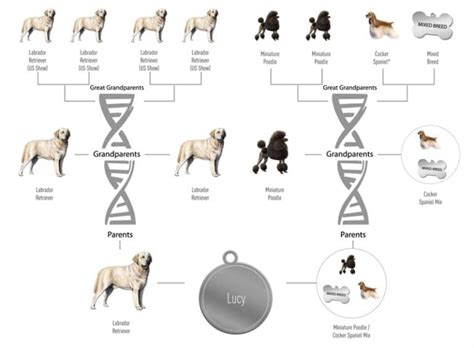Introduction

In today’s rapidly evolving world, pet owners are increasingly seeking ways to enhance the health, well-being, and longevity of their beloved companions. Advances in genetic research and technology are revolutionizing our understanding of pet health and opening up a new era of personalized medicine for animals. This article explores the profound implications of pet health and genetics, empowering owners to make informed decisions to ensure their furry friends live long, healthy, and fulfilling lives.
The Importance of Pet Health and Genetics
Pets are an integral part of our families, providing unconditional love, companionship, and emotional support. Maintaining their health and well-being is not only crucial for their happiness but also for our own. According to the American Veterinary Medical Association (AVMA), approximately 70% of households in the United States own at least one pet. With an estimated 170 million dogs and cats in the country, the health and genetics of pets have a significant impact on public health and the overall well-being of society.
Understanding Pet Genetics
Genetics play a pivotal role in determining a pet’s overall health and predispositions to certain diseases. Each animal inherits a unique set of genes from its parents, carrying instructions that govern everything from physical characteristics to behavior and health outcomes. Advances in genetic sequencing technology have made it possible to analyze an individual pet’s DNA to identify specific genetic markers associated with specific health conditions or traits.
Benefits of Pet Genetic Testing
Pet genetic testing offers numerous benefits to owners, empowering them to make informed decisions about their pets’ health and care. These tests can:
- Identify breed-specific health risks: Determine a pet’s genetic predisposition to inherited diseases, allowing owners to implement early preventive measures.
- Personalize treatment plans: Tailored therapies and medications can be developed based on a pet’s genetic profile, enhancing treatment outcomes and reducing adverse effects.
- Promote responsible breeding: Genetic testing can identify carriers of genetic disorders, helping breeders avoid passing on these traits to future generations and preserving the health of specific breeds.
- Enhance pet health insurance: Genetic testing can provide valuable information to pet insurance companies, enabling more accurate risk assessment and personalized coverage plans.
Challenges and Considerations
While pet genetic testing offers significant benefits, it also presents certain challenges and ethical considerations:
- Cost: Genetic tests can be expensive, and the cost may vary depending on the type of test and the number of genes being analyzed.
- Data interpretation: The results of genetic tests require careful interpretation by a qualified veterinarian or genetic counselor to ensure accurate conclusions.
- Privacy concerns: Pet genetic data can reveal sensitive information about a pet’s health and ancestry, raising concerns about data privacy and potential misuse.
The Future of Pet Health and Genetics
The future of pet health and genetics holds immense promise for the well-being of our furry companions. Emerging technologies and research advancements are anticipated to further revolutionize the field, leading to:
- Personalized nutrition: Genetic testing can guide the development of customized diets tailored to a pet’s individual nutritional needs.
- Improved disease diagnosis and treatment: Advanced genomic technologies will facilitate early detection and more effective treatment options for a wide range of health conditions.
- Gene editing for therapeutic purposes: This innovative approach may offer a means to correct genetic defects and treat inherited diseases at the source.
Tips for Pet Owners
To ensure the optimal health and well-being of your pet throughout its lifetime, consider the following tips:
- Consult with your veterinarian: Discuss the benefits and limitations of pet genetic testing with your veterinarian to determine if it is right for your pet.
- Choose a reputable testing provider: Ensure the testing laboratory follows strict quality control standards and provides reliable results.
- Understand the implications: Thoroughly review the results of your pet’s genetic test with your veterinarian to fully comprehend their potential implications for health and care.
- Seek support from a genetic counselor: Genetic counseling can provide valuable guidance and support in interpreting test results and making informed decisions about your pet’s health.
Conclusion
Pet health and genetics are inextricably linked, offering profound implications for the well-being of our beloved companions. Advances in genetic research and technology have unlocked new possibilities for personalized pet care, empowering owners to make informed decisions about their furry friends’ health and future. As the field continues to evolve, we can expect even greater advancements in disease diagnosis, treatment, and prevention, ensuring that our pets live healthy, happy, and fulfilling lives by our side for years to come.





















